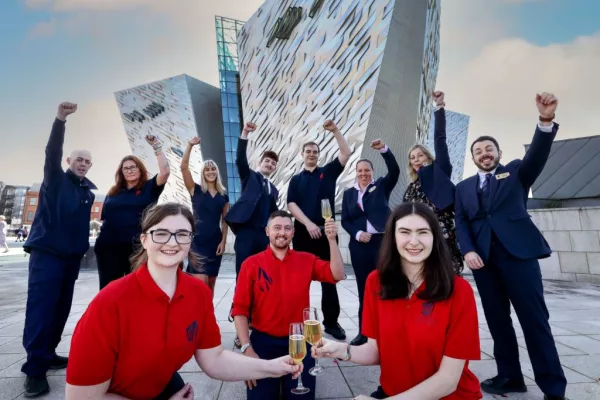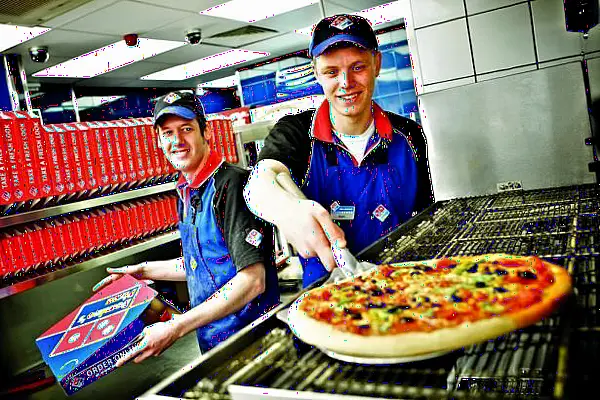Booking travel feels old-school, no matter how you spin it: Such sites as Expedia and Orbitz have barely updated their layouts since 1999, and dialing a travel agent hardly feels appropriate in the age of Uber. That’s about to change, thanks to a series of disruptive travel services that are blending human intelligence with mobile technology. The goal: striking a middle ground in an industry where the personal touch still means something, but the bottom-line savings of D.I.Y. tech is hard to beat.
Skylark
Who it’s for: The time-crunched and independent-minded
What it costs: $400 for an annual membership, billed only when you make your first booking
“People have been writing our epitaphs forever,” said Jack Ezon, president of leading agency Ovation Travel and co-founder of Skylark, a members-only website and app that caters to the luxury leisure market. “Until recently,” he said, “our agency’s high-end customers weren’t going online—the internet was really a mass market space.” That has changed in the last few years, as every five-star company from Four Seasons to Aman began moving their business to the web.
Enter Skylark, which is catering to a new psychographic that Ezon described as the “do-it-yourself until you don’t want to” economy: sophisticated types who know what they want, know how to find it, but simply can’t add to their to-do lists. For a $400 annual fee, they can browse a vetted list of seven to eight hotel-and-airfare packages, all offered at discounted agency rates, and then book within a matter of minutes. Members get the perks of booking with an agent—24/7 customer service, automatic rebookings in the event of flight cancelations, free upgrades, and so on—minus the back and forth. (Skylark is invite-only while in beta mode, and will open to the public by yearend.)
“We merge online and offline,” said Ezon of Skylark’s model. “Every digital transaction is paired with a live travel specialist who you can contact by phone, IM, e-mail … however you want.” The service will help you coordinate a scavenger hunt for the kids in Rio or get VIP access tickets to the British Museum in London, for instance.
In a recent test, we found discounts that ranged from insignificant ($33 off a four-night stay at the Hotel Vernet in Paris) to impressive (29 percent off flights to London and a stay at the Corinthia). The best results come from package deals, which protect both hotel and airline from revealing specific discounts and damaging their price integrity.
Marchay
Who it’s for: Peripatetic business travelers and C-suiters
What it costs: $2,000 for an annual membership
Marchay, a “private travel collective” founded by venture capitalist Jon Ein and entrepreneur Karl Backlund, also puts emphasis on preferential pricing, though it more squarely targets frequent business travelers. As the founder of Foundry Capital, Ein is no stranger to corporate travel programs and the discounts they can offer; his vision adds local intel and better customer service to provide an end-to-end experience.
“Corporate travel agents don’t know what’s hot in the local markets,” explained Ein, who would go out of his way as a finance executive to find the best new restaurants for his work dinners abroad. “Their benefit is size. The bigger you get, the more value you can drive as a travel agent.” His response: Form a collective of members who each pay a $2000 annual fee and commit to spending at least $25,000 per year on travel, and then leverage that high-net-worth community to deliver great hotel rates worldwide.
At Marchay, a membership director works with each customer to create a tailored travel profile before matching the client up with a dedicated team member—several of whom have come from such pedigreed travel companies as Indagare or Mr. & Mrs. Smith. Whereas some mainstream travel agents boost bottom lines by passing on only a partial discount to their clients, Marchay makes its revenue from membership fees; for users, this translates to discounts of up to 65 percent at top-tier hotels.
“There are tons of sharing services that draw on the value of groups, like Inspirato with villas, Netjets with private jets, or Eleven James with watches,” said Ein. “We’re doing that for hotels.”
Lola
Who it’s for: Solo travelers and procrastinators
What it costs: Free, for now. A tiered price system may be introduced down the line
Paul English revolutionized travel booking when he co-created Kayak in 2004. Barely a week after the expiration of his non-compete with Priceline, Kayak’s parent company, he incorporated his latest venture, Lola. Now in beta with 5,000 users and a long waitlist, Lola lets users text their travel needs to specialists, who do the research and present a handful of options—all via an in-app messaging system.
There is, however, a wrinkle that raised our eyebrows. Out of Lola’s first 15 travel specialists, only five have any background in travel. The rest, said English, were hired based on an aptitude for customer service. His philosophy: “If you find people who know customer service and will go the extra mile to make people happy, you can train them on travel far more easily than you can train a travel expert on great customer service.” It also helps that artificial intelligence is a key part of Lola’s back end; the app can detect patterns in your preferences and automatically generate personalized recommendations.
The combo worked surprisingly well. For a last-minute wedding outside Boston, my travel specialist, Jeremy (a fresh college grad, based on his LinkedIn profile), recommended an Aloft right near the suburban venue or a Luxury Collection property downtown—options chosen for either convenience or style, according to brand preferences I’d plugged into my profile at setup. He did not, however, suggest Inn at Hastings Park, a Relais & Chateaux property in the same town as the wedding (which would have fit in another category I'd liked: independent properties). More impressive were Jeremy’s brunch suggestions, which included trendy but critically acclaimed options that would please any connoisseur. And he delivered it all in less than an hour.
Lola has hopes of opening call centers on the East Coast and then in Europe for round-the-clock customer support; after that, it intends to open up an application program interface so any travel agent in the world can have a virtual presence. More immediate, it needs to consider the needs of leisure travelers; currently, it’s a bit cumbersome to book a trip with a spouse or other family members.
Essentialist
Who it’s for: Culture hounds in search of a 2.0 experience
What it costs: Free in its first year and then $1,400 annually
Content comes first with this glossy app that’s slated to launch this summer, the brainchild of travel tech expert Joan Roca and Nancy Novogrod, longtime editor-in-chief of Travel + Leisure. Destination guides take the spotlight: They include content from prolific travel writers based in-situ, as well as influential locals such as designer Kit Kemp in London or chef Marcus Samuelsson in New York. Members can use it all as inspiration for their next trip, or mark articles as “favorite” as a means of customizing their travel profile, Pandora-style.
“This isn’t the standard information that you can get from a lot of travel sites and authorities,” said Novogrod. “It’s very on-the-ground and insider-y, on a very contemporary and innovative platform.” (Disclosure: I reported to Novogrod for several years as an editor at T+L.)
For $1,400 per year, members will get unlimited travel planning support—not just for air and hotel bookings, but also for access to experiences that aren’t generally available to the public. For instance, Novogrod leveraged her connections in Venice to set up a family dinner in a private palazzo not generally open to the public. All trips will also bear the influence of top travel adviser Lisa Lindblad, who will personally oversee the logistics of each itinerary.
With Essentialist, Novogrod and Roca are shooting for a trifecta: rich content in digestible, quick hits; a fast-moving, all-digital process; and old-fashioned advice from real, live specialists.
News by Bloomberg, edited by Hospitality Ireland









